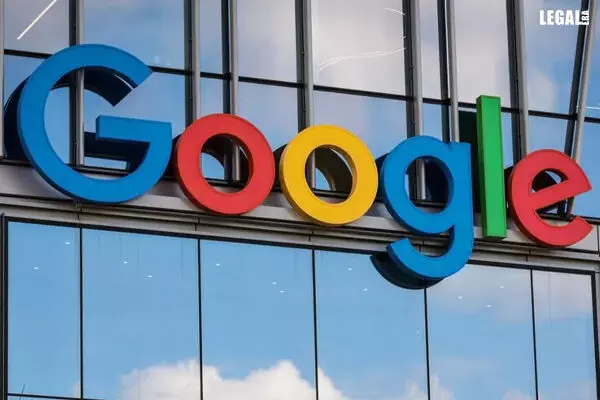- Home
- News
- Articles+
- Aerospace
- AI
- Agriculture
- Alternate Dispute Resolution
- Arbitration & Mediation
- Banking and Finance
- Bankruptcy
- Book Review
- Bribery & Corruption
- Commercial Litigation
- Competition Law
- Conference Reports
- Consumer Products
- Contract
- Corporate Governance
- Corporate Law
- Covid-19
- Cryptocurrency
- Cybersecurity
- Data Protection
- Defence
- Digital Economy
- E-commerce
- Employment Law
- Energy and Natural Resources
- Entertainment and Sports Law
- Environmental Law
- ESG
- FDI
- Food and Beverage
- Gaming
- Health Care
- IBC Diaries
- In Focus
- Inclusion & Diversity
- Insurance Law
- Intellectual Property
- International Law
- IP & Tech Era
- Know the Law
- Labour Laws
- Law & Policy and Regulation
- Litigation
- Litigation Funding
- Manufacturing
- Mergers & Acquisitions
- NFTs
- Privacy
- Private Equity
- Project Finance
- Real Estate
- Risk and Compliance
- Student Corner
- Take On Board
- Tax
- Technology Media and Telecom
- Tributes
- Viewpoint
- Zoom In
- Law Firms
- In-House
- Rankings
- E-Magazine
- Legal Era TV
- Events
- News
- Articles
- Aerospace
- AI
- Agriculture
- Alternate Dispute Resolution
- Arbitration & Mediation
- Banking and Finance
- Bankruptcy
- Book Review
- Bribery & Corruption
- Commercial Litigation
- Competition Law
- Conference Reports
- Consumer Products
- Contract
- Corporate Governance
- Corporate Law
- Covid-19
- Cryptocurrency
- Cybersecurity
- Data Protection
- Defence
- Digital Economy
- E-commerce
- Employment Law
- Energy and Natural Resources
- Entertainment and Sports Law
- Environmental Law
- ESG
- FDI
- Food and Beverage
- Gaming
- Health Care
- IBC Diaries
- In Focus
- Inclusion & Diversity
- Insurance Law
- Intellectual Property
- International Law
- IP & Tech Era
- Know the Law
- Labour Laws
- Law & Policy and Regulation
- Litigation
- Litigation Funding
- Manufacturing
- Mergers & Acquisitions
- NFTs
- Privacy
- Private Equity
- Project Finance
- Real Estate
- Risk and Compliance
- Student Corner
- Take On Board
- Tax
- Technology Media and Telecom
- Tributes
- Viewpoint
- Zoom In
- Law Firms
- In-House
- Rankings
- E-Magazine
- Legal Era TV
- Events
UK Tribunal Approves Class-Action Lawsuit Against Google for Ad Tech Abuse

UK Tribunal Approves Class-Action Lawsuit Against Google for Ad Tech Abuse
The UK's Competition Appeal Tribunal has approved the consolidation of two multi-billion-pound claims against Google for its alleged abuse of its dominant position in the advertising technology market.
The two class-action claims against Google for advertising technology abuse, brought by Charles Arthur and Claudio Pollack, will now be consolidated and proceed to a certification hearing in January 2024. Both claims seek to represent website publishers and app developers who have allegedly suffered losses due to Google's abuse of its dominant position.
By approving the consolidation of the claims, the CAT avoids deciding which claim should be certified and proceed to trial individually. This allows the claimants to present a single, unified case with a united team of experts and counsel, saving time and costs for everyone involved.
Consolidating class-action claims is not a simple task. Other significant claims have faced similar challenges, such as the Trucks Cartel claim across 17 European jurisdictions, which included two putative class claims in the UK alone.
Earlier this year In the FX litigation, there was a carriage dispute between two competing applications for a collective proceedings order (CPO). The Court of Appeal ultimately ruled in favour of one of the applicants, which meant that the other applicants were deselected.
The two class-action claims against Google will be consolidated through a special-purpose vehicle called Ad Tech Collective Action. The two class representatives will serve as partners in a limited liability partnership chaired by Kate Wellington, a consumer rights champion.
Claudio Pollack criticised Google's alleged abuse of its dominant position in the advertising technology market, which is the subject of various legal proceedings around the world. Google has vigorously defended itself against these allegations. Pollack said that the consolidation of the two class-action claims into a single limited liability partnership (LLP) will give UK publishers the best possible chance of obtaining justice.
In a joint statement, Luke Streatfeild of Hausfeld, Toby Starr of Humphries Kerstetter, and Damien Geradin of Geradin Partners said the UK Competition Appeal Tribunal's ruling to consolidate the two class-action claims against Google sets an important precedent, allowing the litigation supported by Fortress Investment Group, a subsidiary of third-party litigation funder Fortress, to proceed without delay.
The trio added that publishers have been losing significant revenue from advertising for nearly a decade due to Google's conduct. This class-action lawsuit, which is free to join for publishers, is the best way for them to obtain fair compensation.


